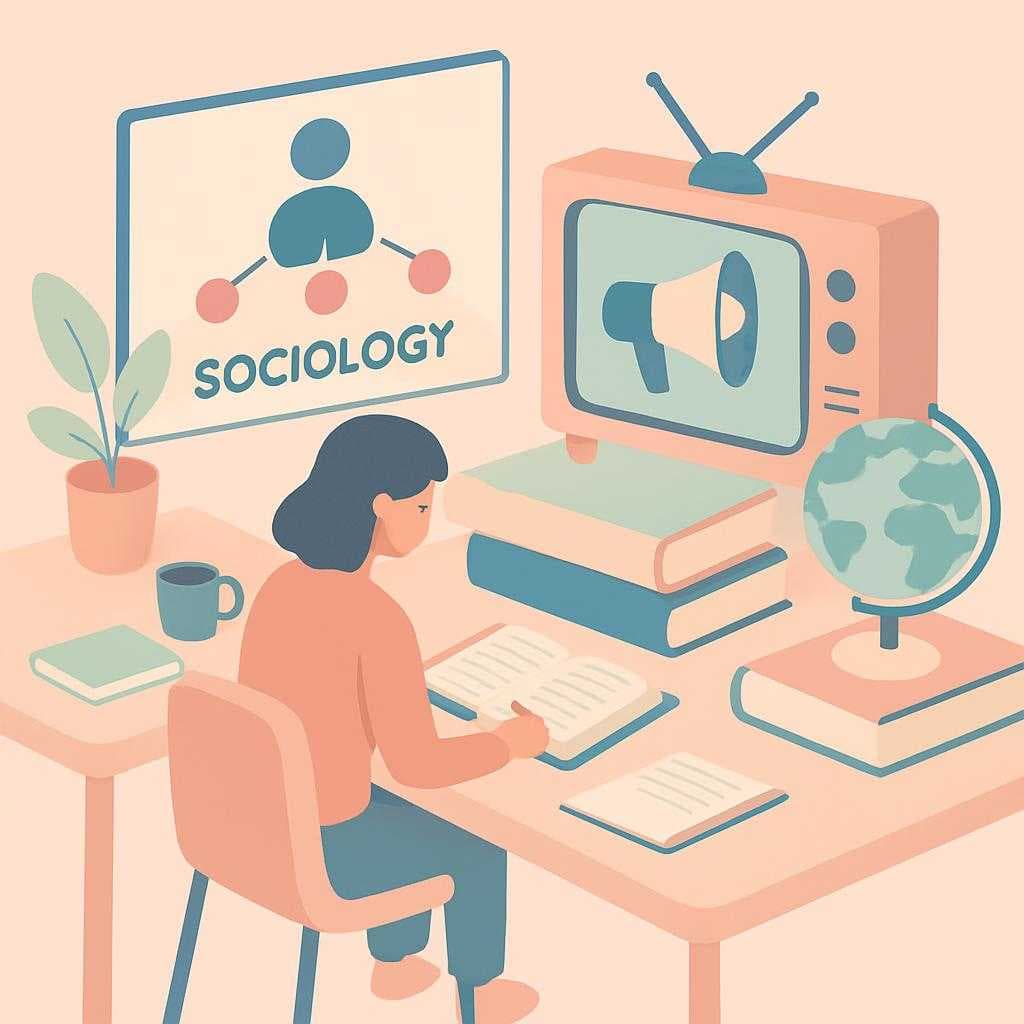Excelling in GCSE Sociology: Understanding the Role of Media in Society
Summary
Unlock the secrets to mastering GCSE Sociology with a deep dive into the role of media in society. This guide will provide UK students with the insights and techniques needed to tackle exam questions on this topic, referencing key exam boards like AQA, OCR, and Edexcel.
Understanding the Role of Media in GCSE Sociology
Studying GCSE Sociology provides students with a unique lens through which to analyze and understand the complex social structures and issues that shape our world. One crucial topic within this curriculum is the role of media in society. Whether you're preparing for exams with AQA, OCR, or Edexcel, understanding media's influence is vital for exam success.
The Importance of Media in Sociology
Media plays a pivotal role in shaping societal norms, values, and perceptions. It acts as a bridge between individuals and the larger world, influencing everything from fashion trends to political opinions. For GCSE Sociology students, understanding how media affects socialization, identity formation, and cultural dissemination is crucial.
Key Areas of Focus
-
Media and Socialization: Media is a powerful agent of socialization. It provides individuals with cultural norms and values, influencing how people perceive themselves and others. Students should explore how media representations affect gender roles, stereotypes, and identity.
-
Media Ownership and Control: Exam boards like AQA often focus on the concentration of media ownership. Understanding who controls media outlets and how this impacts content is vital. Students should be familiar with concepts like media conglomerates and the implications of media bias.
-
Digital Media and Its Impact: In today's digital age, new media platforms such as social media have transformed traditional media landscapes. Exam questions may ask about the influence of digital media on communication, privacy, and social interaction.
Exam Preparation Tips
-
Stay Updated: Media is ever-evolving. Keeping up with current trends and examples will enhance your answers. Refer to recent case studies or news events to illustrate your points effectively.
-
Understand Theories: Familiarize yourself with key sociological theories related to media, such as the hypodermic needle model, cultural effects model, and uses and gratifications theory. These can provide a theoretical framework for your analysis.
-
Practice Past Papers: Exam boards like Edexcel often repeat themes in their questions. Practicing past exam papers can help you understand the types of questions that may appear and improve your time management skills.
Conclusion
Mastering the role of media in society is a critical component of excelling in GCSE Sociology. By understanding its impact on socialization, ownership, and digital transformation, students can confidently tackle exam questions across different UK exam boards. Stay informed, engage with theories, and practice consistently to achieve the best results in your GCSE exams.
